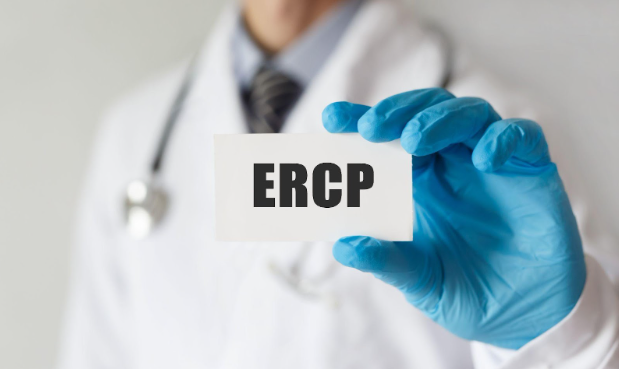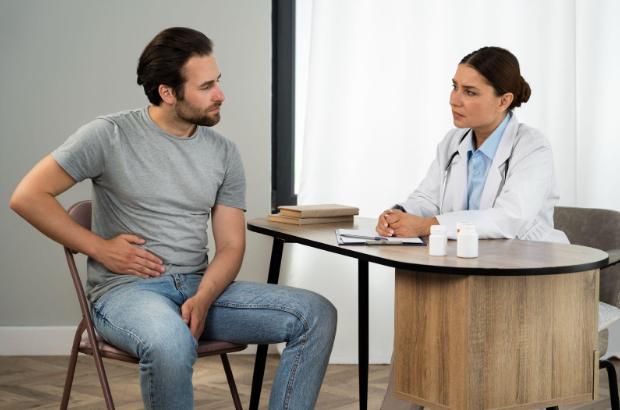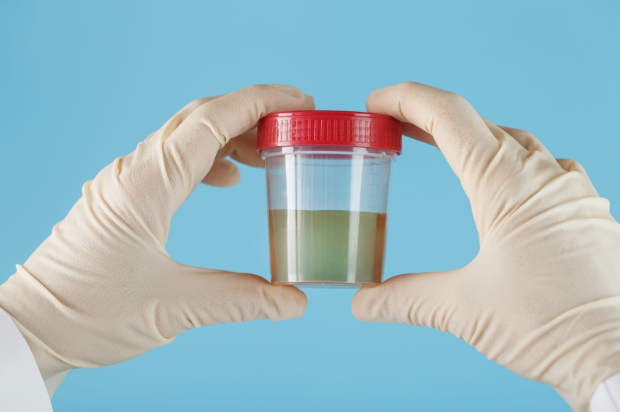
What causes diarrhea?
April 21, 2025
What is Diverticulitis?
April 23, 2025What Is ERCP?

ERCP stands for Endoscopic Retrograde Cholangiopancreatography and it is a less invasive approach to diagnose and treat diseases on the bile ducts, pancreas or gallbladder. Technique using endoscope and fluoro scope to offer precise imaging plus biomechanical control of therapeutics, to guarantee adequate handling of intricate gastrointestinal disorders.
For more information and career services, please go to Gastroenterology Associates of NYC.
How Does ERCP Work?
ERCP uses flexible endoscope that is passed through the oral cavity, esophagus into the stomach and duodenum. Subsequently, a thin catheter is inserted to pour some contract solution into the bile or pancreatic ducts allowing the real-time X-ray imaging.
This procedure is often performed to:
- The only way surgeons try to detect these obstructions, including gallstones and strictures is by exploring the bile ducts.
- Diagnose malignant and benign tumours in the pancreas or bile ducts.
- Management of bile duct infection (cholangitis)
- The smooth gutters should be cleaned of all stones or other material that will prevent their free flow.
- This is the correct location of the stents you will need to maintain the drainage of the ducts.
Why Is ERCP Needed?

ERCP is recommended for patients experiencing symptoms or conditions such as:
- Jaundice: Jaundice that is caused by obstruction of the bile ducts.
- Unexplained abdominal pain: Chronic pain that is associated with the bile ducts or pancreas.
- Pancreatitis: An affection of the pancreas characterized by the formation of stone or gallstones which block the pancreas.
- Suspicion of cancer: Those cancer of the bile duct or of the pancreas.
Biliary leaks: It is an inflammation commonly caused by injury to the tissue or due to surgery.
Preparing for an ERCP
It is mandatory to prepare adequately in order to achieve the best outcome for the ERCP method. Key steps include:
Fasting: Do not consume food and drinks for at least 6-8 hours before the procedure is done.
Medication Review: Please let your doctor know of any medications especially blood thinners so that you may be advised on when to stop or reduce these products.
Consent and Discussion: By consulting your doctor, try to know the dangers or the advantages of the techniques to be used, as well as other available options.
Transportation: Make sure, there is someone to take you home after the procedure, as sedation is mostly applied.
The ERCP Procedure Step-by-Step
Sedation: To capture patients to be relaxed and comfortable, they are anesthetized.
Endoscope Insertion: A long, flexible fiber-optic tube containing a camera is inserted in the gastrointestinal system.
Contrast Dye Injection: In barium enema, barium sulphate is consumed by the patient, and dye is sprayed in the ducts to make various parts noticeable in X-ray images.
Therapeutic Intervention: Based on the outcome of the scan the doctor may have to carry out surgery operations such as removing stones, placing stents, or carrying out biopsies.
Completion: The endoscope also withdrawn and the patient observed during the recovery period
Benefits of ERCP
ERCP offers several advantages, including:
- The detection of bile duct and pancreatic diseases with good precision.
- Non-invasive or significantly less invasive treatment plans.
- Healing of the obstruction to reduce the amount of discomfort and even pain experienced by the patients.
- Prevention of performing more complex surgeries that would require longer times to recovery.
Potential Risks and Complications
While ERCP is generally safe, potential complications include:
- Pancreatitis: A condition characterised by a temporary swelling of the pancreas gland.
- Infections: As for example cholangitis or peritonitis.
- Bleeding: Especially where there has been a tissue sample taken or a stent introduced.
- Perforation: A very unusual, however, potentially deadly complication involving perilous colon perforation.
To minimize risks it is advisable that the procedure is administered by an experienced gastro enterologist.
Recovery After ERCP
In most instances, patients gain orienting themselves quickly after the procedure is complete. Key aspects of recovery include:
Monitoring: Supervision for several hours to confirm that it is not going to swing back in the other direction.
Diet: Referral to a dietician: Starting with small amounts of clear liquids then gradually increasing to soft foods depending on symptomology.
Medication: In case of need they may be given pain killers and antibiotics.
Follow-Up: Follow-ups to determine the result of the therapy and to deal with side effects.

Follow-Up: Follow-ups to determine the result of the therapy and to deal with side effects.
Common Conditions Treated with ERCP

Gallstones
The common gallstones have the ability to block bile resulting in intense pain and infections. Their removal is made possible by ERCP and consequently, normal function is regained.
Bile Duct Strictures
Pathological changes that lead to obstruction include any changes that cause the narrowing of the bile ducts be it through injury, surgery, or even disease. ERCP can both dilate and stent these strictures.
Pancreatic Duct Disorders
It is also suitable for patients with conditions such as pancreatic divisum or ductal strictures as a treatment tool.
Cancer Diagnosis and Treatment
ERCP is useful in diagnosing and occasionally staging cancers of the pancreas, biliary tract or gallbladder often in conjunction with biopsy.
ERCP vs. Other Diagnostic Methods
Compared to various other methods such as endoscopic MRCP, ERCP has additional benefits of both diagnostic and interventional use. Although MRCP provides very good imaging, it cannot intervene in the treatment of such abnormalities and, for this reason, ERCP is chosen for many conditions.
Choosing the Right Specialist for ERCP
It is therefore important that patient and healthcare provider stay as selective as they can to ensure they get an experienced and competent gastroenterologist who is ever ready to handle an ERCP. Pisek, at Gastroenterology Associates of NYC Gastroenterology Associates of NYC, the specialists and staff continue to give our patients the top quality care and individualized attention that they deserve.
Key Takeaways
- ERCP is an immensely helpful technique in the diagnosis of bile duct and pancreatic diseases management.
- The procedure is non-invasive and has implications of diagnostic as well as therapeutic value.
- Preoperative planning, intraoperative technique, and the postoperative management are therefore important determinants of outcome.
If you or a loved one needs ERCP, please don’t hesitate to get in touch with Gastroenterology Associates of NYC. 📞 Call us: (212) 889-5544— Book Appointment for expert consultation and treatment.



